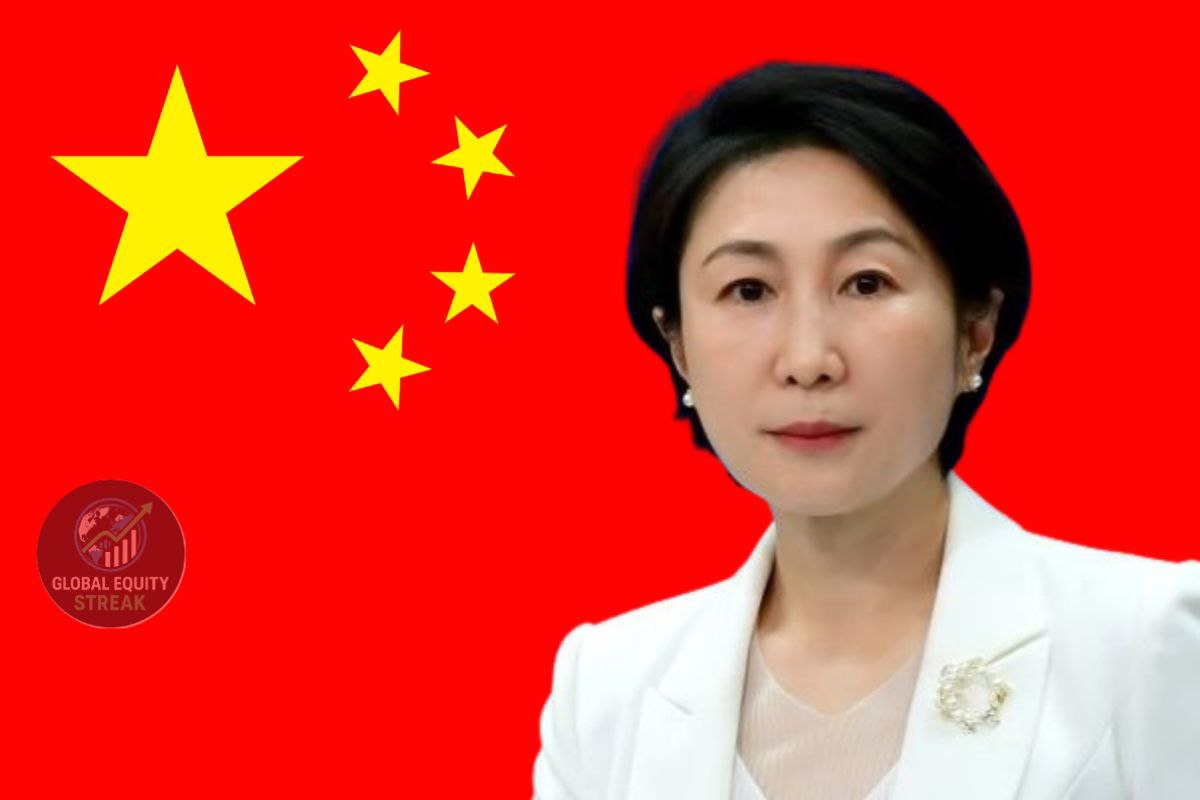China Foreign Ministry Briefing:At its July 8, 2025 press conference, China’s Foreign Ministry detailed Premier Li Qiang’s BRICS summit vision, Wang Yi’s ASEAN agenda, and expectations from Australian PM Albanese’s upcoming visit. China also hit back at U.S. remarks on Tibet and Trump’s looming tariff threats. Here’s the full diplomatic roundup shaping China’s foreign policy.
China Foreign Ministry Briefing: July 8, 2025
China’s Ministry of Foreign Affairs held a regular press conference on July 8, 2025, where spokesperson Mao Ning shared major diplomatic updates and responded to pressing international questions.
The briefing touched upon Premier Li Qiang’s attendance at the BRICS Summit, Australian Prime Minister Anthony Albanese’s upcoming visit to China, Foreign Minister Wang Yi’s engagement in ASEAN meetings, China’s position on Tibet, and recent comments by U.S. officials including President Donald Trump’s tariff threats. Below is a detailed summary.
Australian PM’s Upcoming Visit to China
At the invitation of Premier Li Qiang, Australian Prime Minister Anthony Albanese will undertake an official visit to China from July 12 to 18. Mao Ning highlighted that this visit is particularly significant as the China-Australia comprehensive strategic partnership marks its tenth anniversary. China sees this visit as an opportunity to enhance mutual trust, broaden practical cooperation, and further develop bilateral relations.
Wang Yi to Attend ASEAN Foreign Ministers’ Meetings
From July 10 to 11, Chinese Foreign Minister Wang Yi will be attending a series of regional diplomatic meetings in Kuala Lumpur, Malaysia. These include the China-ASEAN Foreign Ministers’ Meeting, the ASEAN Plus Three Foreign Ministers’ Meeting, the East Asia Summit Foreign Ministers’ Meeting, and the ASEAN Regional Forum Foreign Ministers’ Meeting.
Mao Ning emphasized that while East Asian cooperation has steadily progressed, rising instability in the global environment poses new challenges. China aims to reinforce ASEAN centrality and regional integration through high-quality implementation of the RCEP, upgrading the China-ASEAN Free Trade Area 3.0, and promoting peaceful, inclusive development based on shared Asian values.
Premier Li Qiang’s BRICS Summit Participation
Premier Li Qiang represented China at the 17th BRICS Summit held in Rio de Janeiro, Brazil, from July 6 to 7. During the summit, Li expressed concern over growing global instability, rising protectionism, and weakened multilateral institutions. He emphasized that BRICS nations—being central players in the Global South—should lead in reforming global governance, defending world peace, and promoting economic growth through openness and inclusiveness.
The summit resulted in the adoption of several key documents, including the Rio de Janeiro Declaration, the Statement on Global Governance of Artificial Intelligence, and the Climate Finance Framework Declaration. China pledged to use the momentum from this summit to deepen BRICS cooperation, advocate for multilateralism, stabilize global supply chains, and contribute to a fairer, more effective global order.
China Responds to U.S. Comments on the Dalai Lama
U.S. Secretary of State Marco Rubio recently released a public message congratulating the 14th Dalai Lama on his 90th birthday and made remarks concerning the Tibet region (referred to as Xizang by China). In response, Mao Ning reiterated that Xizang is strictly China’s internal affair and that the Dalai Lama is a political figure engaged in separatist activities, not a legitimate religious leader.
Mao asserted that the so-called “Tibetan government-in-exile” does not represent the people of Xizang. She emphasized that the region enjoys economic growth, social stability, and cultural preservation under Chinese governance. The spokesperson urged the U.S. to respect China’s sovereignty, cease its interference in Tibet-related issues, and stop sending any misleading signals to pro-independence factions.

On a Possible Meeting Between Wang Yi and Marco Rubio
When asked whether Foreign Minister Wang Yi would meet U.S. Secretary of State Marco Rubio during the ASEAN events in Kuala Lumpur, Mao Ning responded that she had no information to provide regarding such a meeting.
China’s Reaction to Trump’s Tariff Threats
President Donald Trump recently issued letters threatening new tariffs on key U.S. trading partners, with implementation deferred until August 1. When questioned about China’s view on this, Mao Ning reiterated that China opposes trade wars and protectionism, emphasizing that no country benefits from such measures. She noted that protectionist policies ultimately harm global economic stability.
On the topic of China-U.S. trade negotiations, Mao deferred further details to the “competent authorities,” indicating that discussions may be ongoing through other government departments.
Upcoming U.S.-China Trade Talks
U.S. Treasury Secretary Scott Bessent has indicated plans to meet his Chinese counterpart in the coming weeks to discuss trade and broader economic cooperation. On this, Mao Ning also referred journalists to the relevant authorities, offering no specific comment.
The July 8 press conference reflects China’s multifaceted diplomatic engagement amid a shifting global landscape. Whether through strengthening ties with regional partners like ASEAN, managing strategic relationships with Western nations like Australia, or responding firmly to U.S. criticisms and trade threats, China aims to project a narrative of stability, mutual development, and multilateralism.
The coming days will be crucial in observing how these diplomatic overtures materialize—especially with high-level visits and strategic meetings scheduled across the Asia-Pacific region.
Disclaimer:
This blog post is intended for informational and educational purposes only. The content is based on publicly available statements from official press briefings and news sources. It does not reflect the views or positions of the blog or its author. Readers are encouraged to verify facts independently and consult official government or diplomatic channels for the most accurate and updated information. This article does not aim to promote or oppose any political ideology or government.

